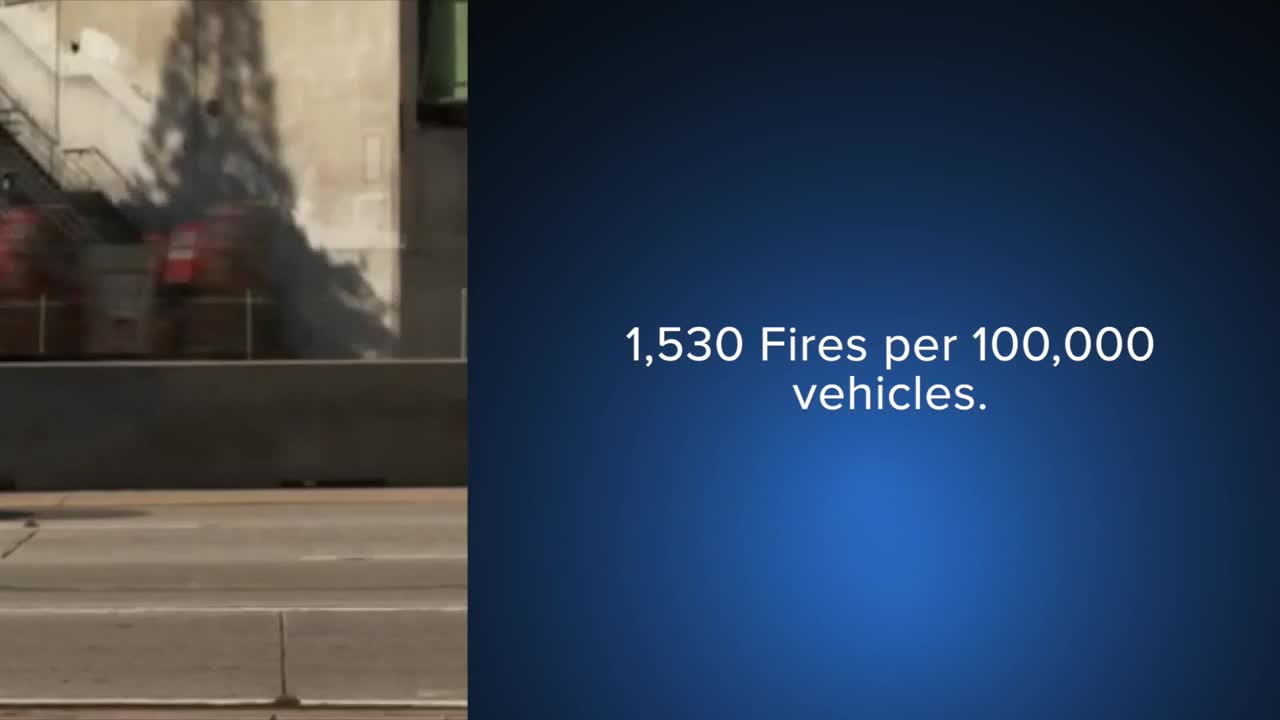VIRGINIA BEACH, Va. — A recent electric vehicle fire in Virginia Beach is sparking conversation about the unique risks and challenges tied to battery-powered cars.
Firefighters released a video showing the aftermath of an electric vehicle (EV) that caught fire inside a commercial garage on Bayside Road earlier this week. No one was hurt, but officials say the incident is a reminder to use caution — especially when parking EVs in enclosed spaces.
“Recently, we have updated our response matrix to include electrical vehicle fires,” said Capt. Jake Forestiere of the Virginia Beach Fire Department.
Unlike gas-powered cars, EV fires can be harder to put out.
“With putting a standard vehicle fire out, we would just use copious amounts of water,” Forestiere said. “As far as EV fires go, water doesn’t seem to have too much effect. We carry on Rescue 2 a fire blanket specifically for electrical vehicles that we are going to cover and try and smother the fire.”
Forestiere added that if an EV does catch fire, the best move for owners is to keep their distance.
“We recommend you don’t go anywhere near them,” he said.
Still, experts stress that electric vehicles are generally safe. Studies from the National Transportation Safety Board show EVs are tied to about 25 fires per 100,000 vehicles, compared with roughly 1,530 fires per 100,000 gas-powered vehicles — meaning gasoline cars are statistically far more likely to catch fire.
Across Virginia, more than 130,000 EVs are registered, according to state data, compared to the millions of gas-powered cars still on the road.
For EV drivers like Shamonte Prater, who has owned her fully electric car for more than a year, the benefits outweigh the risks.
“Let’s say for an electric vehicle, something I do have to do is plan out my commute,” Prater said. “But I only spend 12 dollars for a charge a week.”
Prater says she feels confident in her choice.
“Very safe, especially with the technology that electric cars do have,” she said.
Forestiere agrees, noting that lithium-ion batteries are designed with safety in mind.
“Electrical vehicles are intrinsically safe,” he said.
For Prater, that means convenience and peace of mind.
“The convenience for me is a plus,” she said. “I wouldn’t change anything about it.”





